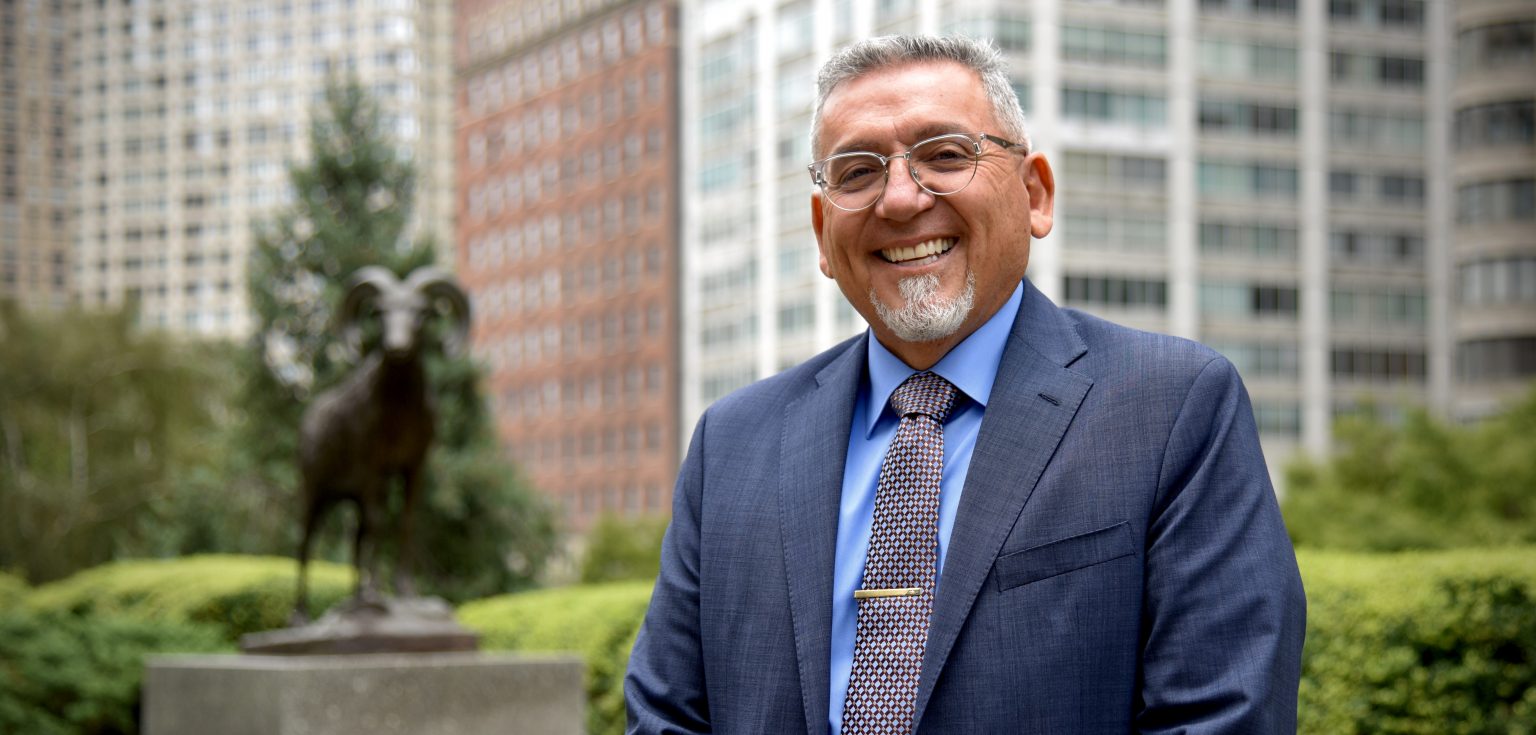Alvarado previously served as provost and vice president for academic affairs at Cal State Los Angeles, the founding dean of the College of Education at California State University Monterey Bay, and associate dean of the College of Education at San Diego State University. He developed the Teacher Pathway Program, a partnership between California State University Monterey Bay and community colleges in the Salinas Valley region that educates underserved first-generation college students predominantly from diverse backgrounds. At the College of Education at California State University Monterey Bay, he also cultivated a diverse community of students and faculty; over 70% of new faculty hires were from diverse, underrepresented backgrounds.
At Fordham, Alvarado is responsible for setting and implementing the vision of GSE, which offers more than 40 master’s, doctoral, and certificate programs in nearly three dozen fields of study.
In a Q&A with Fordham News, he spoke about his humble beginnings and how they shaped him into an educational leader.
You had a challenging childhood. What lessons did you learn?
I was born in the city of Mexicali, Mexico, which borders southeastern California. As my siblings and I progressed in school, my parents who worked as farm laborers, felt that it was time to immigrate and try to escape poverty. In the U.S., our family of six first lived in a one-room shack. We struggled, but there was always a sense of love and togetherness. My mother worked in citrus packing sheds, where she packed grapefruit, oranges, and lemons. My father worked all sorts of crops. I learned my work ethic from my parents, who tried so hard to do better for us children. But growing up, I realized that working hard wasn’t sufficient. As hard as my parents worked, we were still poor. And as I saw the struggles that my two brothers faced—one of them involved in gangs and substance abuse—I knew I needed to do something different.
What set you on a path toward college?
In my junior year, I told my guidance counselor I wanted to go to college. She leaned back in her chair, looked at me, and said, ‘College is not for you. You should go to a trade school instead.’ My parents raised me to be respectful, so I didn’t say what I was thinking. But I thought, ‘You don’t know me. You don’t know what I’m capable of doing.’ I don’t believe anyone in my high school knew what I was capable of because they just saw another Mexican kid—a throwaway kid.
My goal was to graduate from college, become a counselor, and take her job. I wasn’t prepared to attend a university because most of my high school experience was remedial. But in community college, I finally felt academically challenged. I fell in love with learning. And I realized that revenge wasn’t my motivator anymore. Whatever I became, I would be in a position to help others.
You’ve lived and taught on the West Coast for a long time. What brought you to Fordham?
I love teaching and working with students. But at this point in my career, I see my role as a facilitator: supporting the highest quality preparation for tomorrow’s educational leaders. I feel like I can make a greater impact by supporting the faculty who do that and the staff who support the programs.
Fordham is an institution that lives by its values: a commitment to social justice, equity, human rights, and to serving underserved communities. I’ve lived my life professionally and personally in a way that aligns well with Fordham as an institution, and certainly the GSE. It felt right.
As dean of the Graduate School of Education, what are your main goals for the upcoming academic year?
I am interested in engaging faculty and staff in strategic planning, increasing student enrollment, and diversifying our faculty and the students we serve. Research shows that students who are taught by teachers who reflect their ethnic and social backgrounds tend to do better academically. Having teachers who are well-prepared and experts in their field is necessary, no matter what. But when you also have teachers who also reflect the ethnic background and cultural experiences of their students, that’s an even better deal.
How has being a first-generation college graduate changed your life?
Education allowed me to break the cycle of poverty for myself and my children, who are both college graduates. They didn’t have to struggle the way our ancestors struggled. What I did is not just for me—it’s for every generation that comes afterwards.
I wouldn’t be here without the help of so many people, especially my parents, Ignacio and Angela. They always supported me, even though they didn’t know quite what I was trying to do. We were really poor, but somehow my mother ended up with a credit card. The only reason she got it was to put gas in my car so I could drive to my community college.
Being in education humbles you. You come to realize that people may not have a formal education, but that doesn’t mean they’re not smart. My father went to school until third grade, but he’s one of the smartest men I’ve ever known. He just never had the opportunity. Every day, I try to live up to his potential.
This interview has been edited and condensed for clarity.

